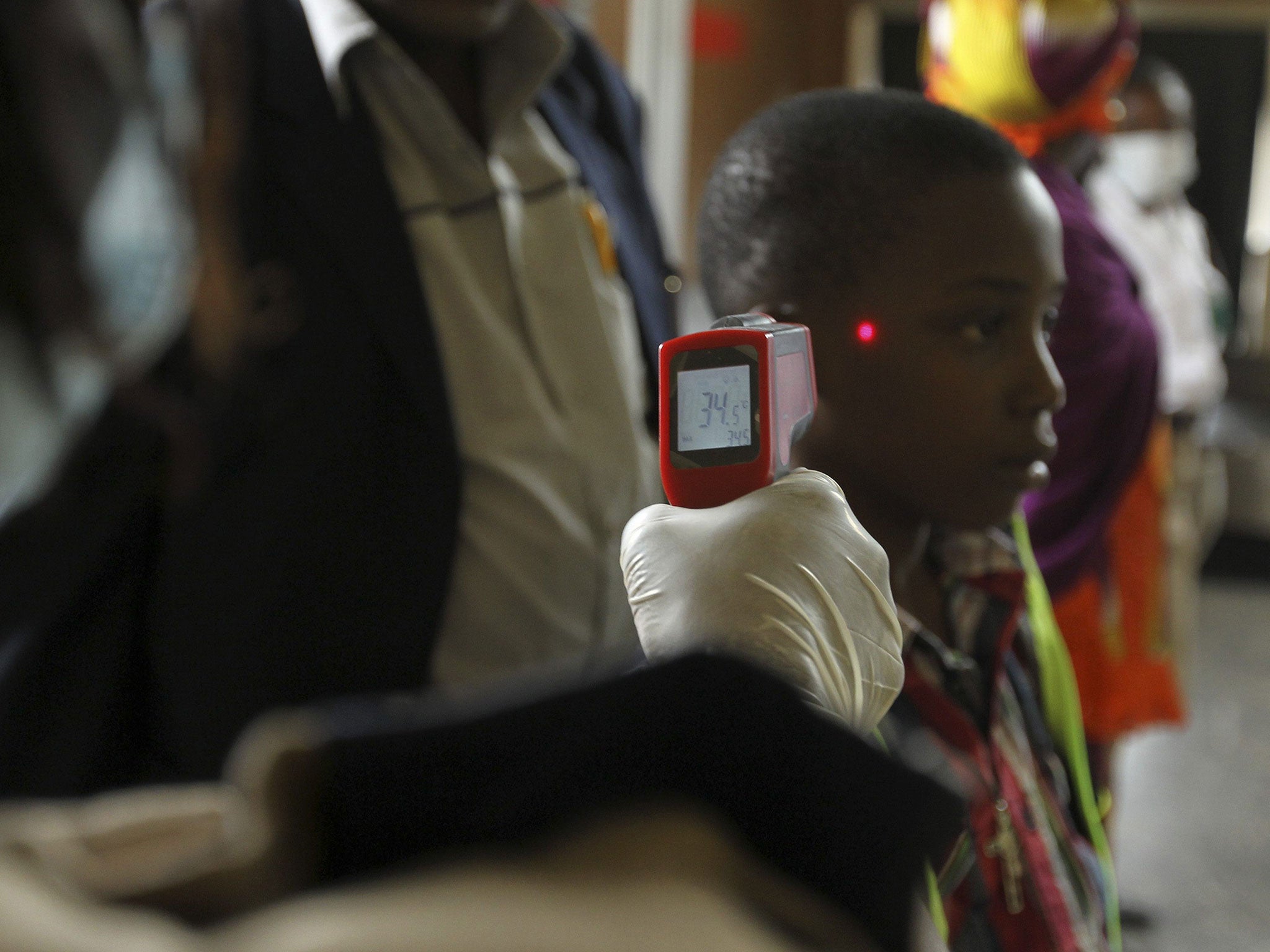Ebola outbreak: Fears for Lagos - a vast city of 21 million ‘perfect for the virus to spread’
The devastating outbreak has caught authorities in the Nigerian commercial capital unprepared

When Liberian-American Patrick Sawyer collapsed at Lagos airport, he brought Ebola into a potentially ideal place for the deadly virus to spread – a vast, dirty, overcrowded city where tracing carriers and their contacts is a major problem.
Sawyer’s arrival last month from Liberia – which, along with Sierra Leone and Guinea, lies at the centre of an outbreak that has killed more than 1,000 people – caught authorities in the Nigerian commercial capital unprepared. By the time they realised where he was from or what illness he had, Sawyer had had contact with dozens of people. Lagos has now had 10 cases of Ebola, an illness spread by contact with the fluids of an infected person.
As Africa’s biggest economy, Nigeria has a better health system than the other West African countries which are among the poorest in the world, and Ebola doesn’t spread through the air or water supply as with many other epidemic diseases.
See the Ebola outbreak mapped
Show all 7But health experts – who are trying to overcome superstition and public ignorance about Ebola as well as the disease itself – say there is now only a short opportunity to find and lock down other infected people before the outbreak in the city of 21 million gets out of hand.
“Lagos is big, it’s crowded. It would make in many ways a perfect environment for the virus to spread,” said Nigerian epidemiologist Chikwe Ihekweazu, who runs website Nigeria Health Watch and worked on Ebola in South Sudan a decade ago. “In the heart of Lagos, people live on top of each other, sharing bedrooms and toilets. In densely populated communities infection control becomes almost impossible to do well.”
When Sawyer landed at Murtala Mohammed airport on July 20, none of the bystanders, airport staff or health workers who rushed to help him understood the danger they were in.
No one had the full body protection of mask, suit and gloves that are essential to prevent contagion, so his ill advised journey gave the world’s worst Ebola outbreak a foothold in Africa’s most populous nation.
Sawyer died five days later, followed by one of the nurses who first treated him. Eight others are confirmed infected and receiving treatment.
“Nobody knew the status of this person, no one knew the illness that he had, no one knew he was coming,” Lagos state health commissioner Jide Idris said.
Reuters
Subscribe to Independent Premium to bookmark this article
Want to bookmark your favourite articles and stories to read or reference later? Start your Independent Premium subscription today.

Join our commenting forum
Join thought-provoking conversations, follow other Independent readers and see their replies